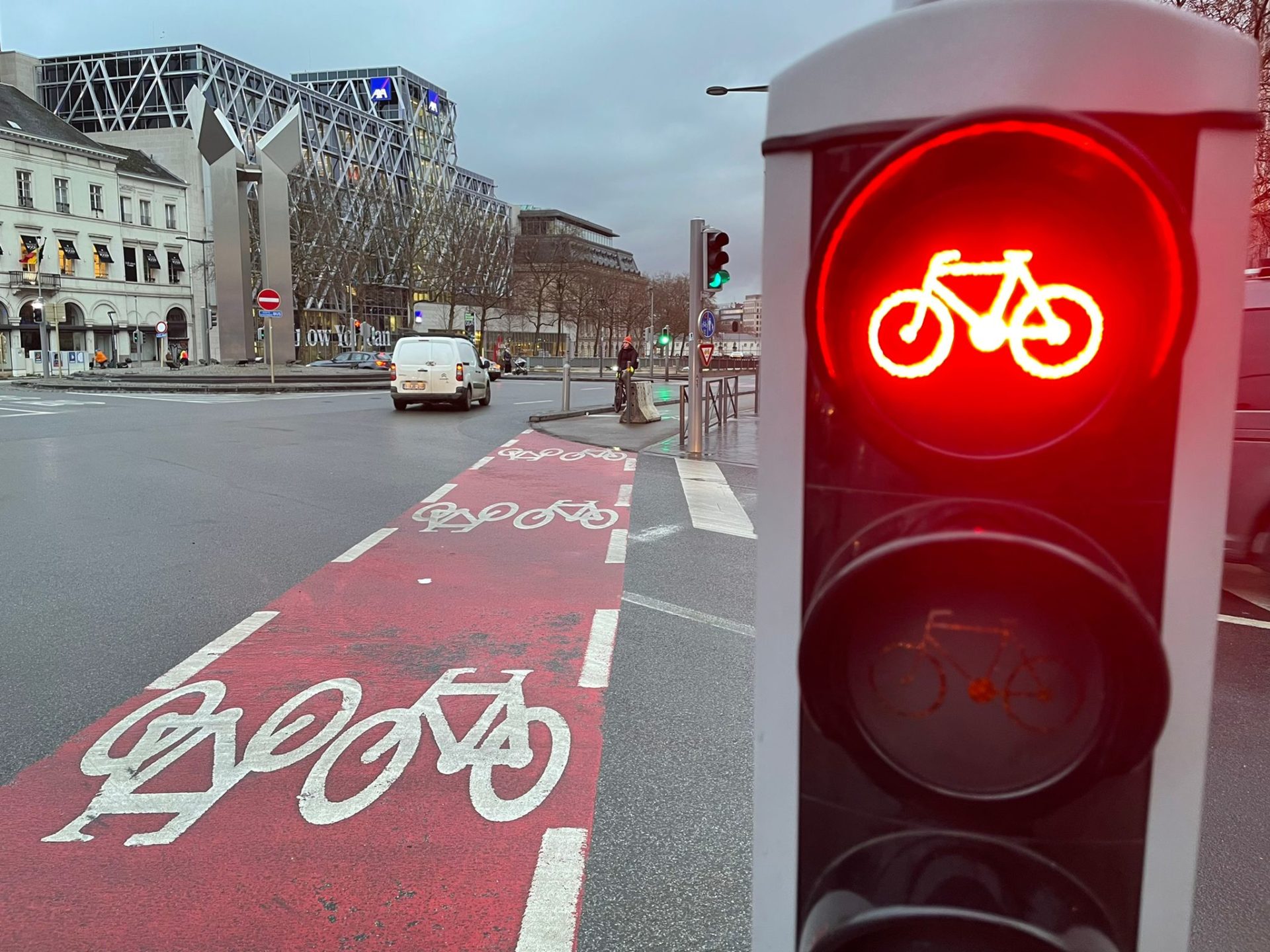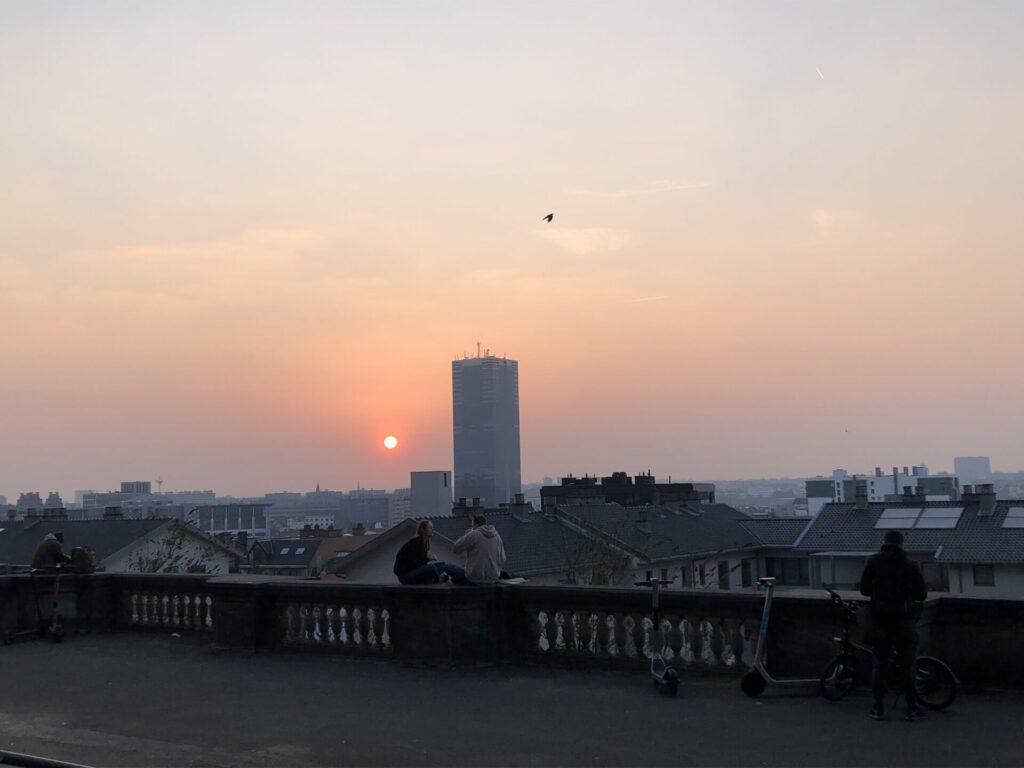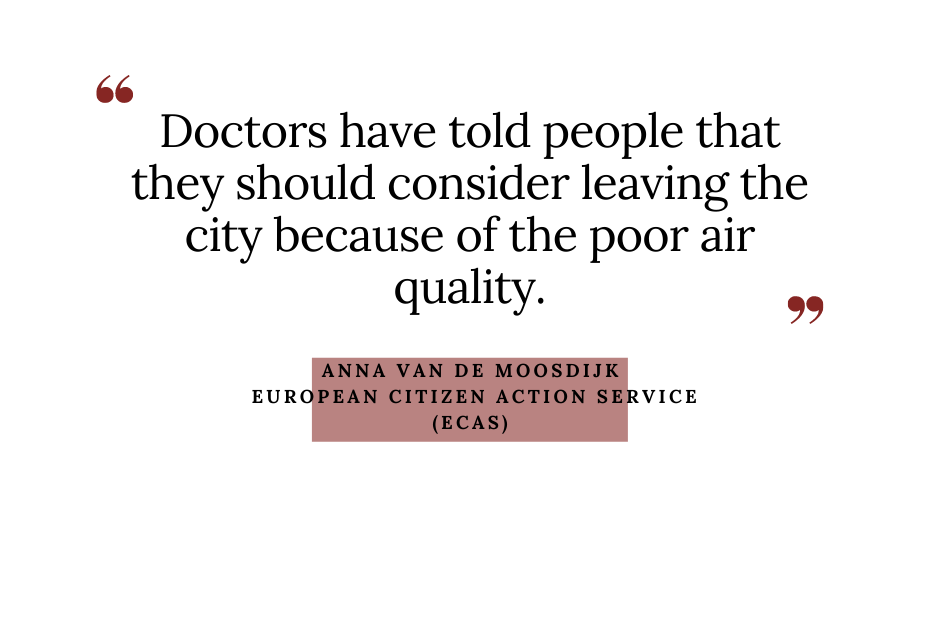People living in Brussels have shared their concerns regarding air pollution in the region, with doctors telling residents to leave the city due to poor air quality, and cyclists increasingly worried about their exposure to pollution.
The results of the first phase of the recently launched “Brussels for Clean Air” project – a crowd-sourcing exercise giving residents a chance to make their voice heard about pollution – are not representative of the entire population, but do highlight the main concerns that keep them awake at night.
“Overall, people indicated they are very concerned about air pollution. Health concerns were mentioned by more than 50% of all the respondents,” Anna van de Moosdijk, Campaigning Officer from European Citizen Action Service (ECAS), who launched the initiative, told The Brussels Times.
From severe coughs to other respiratory and even dermatological issues, various health concerns were linked to increased air pollution. Van de Moosdijk said that some people were even considering moving away from the city due to the severity of the situation.
"Some people said their children were developing asthma as a result of living in the city, and that their doctors said they should consider leaving the city because it is not sustainable and that their children will suffer too much from the consequences," she said.
One person who moved from a "less-polluted area in Europe" said that, since moving to Brussels, they developed a chronic cough. "As soon as I spend some weeks away from the city, my condition gets better," the testimony read.
Socio-economic inequalities
Brussels exceeds health standards on pollution levels for various polluters and in many different areas in the region. Around 17,000 inhabitants of Brussels are exposed to very high concentrations of NO2, which can contribute to the development of respiratory diseases.
The findings were recently mapped by the largest ever survey on air pollution in the region, and in some places, the situation is worse than in others. This is mostly the case in less wealthy municipalities such as Saint-Josse-ten-Noode, especially for NO2, and areas in the Northern district, where high levels of PM10 emissions were recorded.
"Even with the gentrification of these neighbourhoods ongoing, the situation here is nothing like in, for example, Woluwe-Saint-Pierre, where there is more green space," van de Moosdijk said.
One respondent said they were looking to move to a different neighbourhood precisely to avoid air pollution, but that this automatically means paying a much higher rent. "Air pollution nuisances are directly correlated to the cost of living," they wrote.
Vulnerable road users more affected
Residents' testimonies also highlighted that vulnerable road users (cyclists and pedestrians) find they are more subjected to air pollution in the region, especially in areas where efficient cycling infrastructure is missing.
One person who commutes in the city by bike every day said that, while waiting in front of traffic lights, they often find themselves right next to car exhaust pipes. "I am the one reducing air pollution, but I am also the one most affected by it, not those inside the car."

A cycling path in Brussels. Photo by Helen Lyons/The Brussels Times
Others indicated that after cycling, even when wearing a face mask, they feel dizzy, nauseous and suffer from coughing fits. "Some said that when walking through the city, they could smell the pollution," van de Moosdijk said.
She added that people don't know where to go with complaints about poor circulation plans, as they don't understand which government levels deal with these policies. "But they all agree that, whoever is dealing with these things, they are not being handled well."
Tackling pollution on local and EU level
As part of the initiative’s second phase, citizens are now asked to share possible solutions to the ten identified issues between April and June. This will be followed by a voting phase from June to September, during which people can decide what solutions will be most efficient.
Related News
- From ‘excellent’ to ‘extremely poor’: Brussels air quality mapped by neighbourhood
- No fresh air: Brussels parks not as green as they seem
- Seven million preventable deaths: 99% of world's population breathes unhealthy air
By the end of phase three, the most popular solutions will be handed over to Alain Maron, the patron of the initiative in Brussels, who will in turn present these to the relevant administrations.
"This is where the direct impact becomes clear: this is not just an initiative, there is a clear link with government action," Elisa Lironi, the Programme Director for European Democracy at ECAS, said.
The project also takes place in nine other European cities, where ideas and solutions have also been gathered. The solutions from all locations will be gathered, and people are then, in the fourth phase, invited to co-create a European policy proposal for air pollution, which will be directed to EU policymakers.
“Ultimately, the issue of air quality must be addressed on many different levels, indeed: from the local level to the EU level," Lironi concluded.


